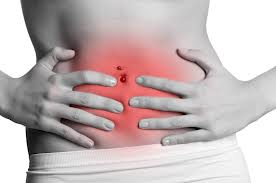Patient: Doc, how can I tell if I have SIBO (Small Intestinal Bacterial Overgrowth)?
Doctor: Well, there’s a long answer and a short answer to that question. Let’s start with the long one.
Long Answer to Diagnosing SIBO
The diagnosis of SIBO is controversial. There is substantial disagreement in the literature regarding which test is the most appropriate in either the clinical or research setting. Two tests are commonly employed: bacterial culture and breath tests. (1)
Direct Testing is done through Endoscopic Aspiration and Culture of the Small Intestine. This is invasive, expensive, inconvenient, and since many bacterial species won’t grow in cultures, there is a high prevalence for a false negative readings. That means that the patient actually does have SIBO, but the test is not sensitive or specific enough to detect it.
Indirect Testing using the Hydrogen and Methane Breath Test. This test is administered by testing for hydrogen and/or methane gas in the breath following consumption of a substance that should induce symptoms in the SIBO patient. If the gas level is elevated, the patient is considered to have a bacterial overgrowth.
Sometimes patients will test and show a negative (indicating no bacterial overgrowth) result. However, just because the test result comes back negative, does not mean the patient does not have SIBO. Often times, the patient actually does have a bacterial overgrowth but the testing method failed to detect it. Other times, the test method will detect gas that is produced in the colon, not in the small intestine. (2)
Again, many factors can cause false readings including:
- Recent antibiotic use
- Altered intestinal transit times
- Certain species of bacteria may not react to the substance used to induce symptoms
- Many species produce gases other than hydrogen or methane
- Some patients produce gas hours after the test is administered
So, as you can see, there is no gold standard for diagnosing SIBO.
Short Answer to Diagnosing SIBO
 Doctor: Do you have bloating, belching, and abdominal distention or discomfort when you eat sugar, starch, fiber, grains or take probiotics?
Doctor: Do you have bloating, belching, and abdominal distention or discomfort when you eat sugar, starch, fiber, grains or take probiotics?
Patient: Yes
Doctor: You probably have SIBO
[I]n patients who refer abdominal discomfort after ingestion of different carbohydrate-containing foods, a small intestinal bacterial overgrowth should be promptly considered. (3)
With no gold standard for definitively diagnosing SIBO, typical diagnosis is made by questioning for symptoms and following with an elimination diet. If improvement is seen, it can be suspected that the patient has SIBO.
For more information about SIBO, how you get it, and what to do about it, please see our other educational articles HERE.
(1) Gastroenterol Hepatol (NY). 2007 Feb;3(2):112-122 Small intestinal bacterial overgrowth: a comprehensive review.
(2) Gut 2011;60:334-340 Combined oro-caecal scintigraphy and lactulose hydrogen breath testing demonstrate that breath testing detects oro-caecal transit, not small intestinal bacterial overgrowth in patients with IBS.
(3) Eur Rev Med Pharmacol Sci. 2013;17 Suppl 2:26-29 Fructose, trehalose and sorbitol malabsorption.
